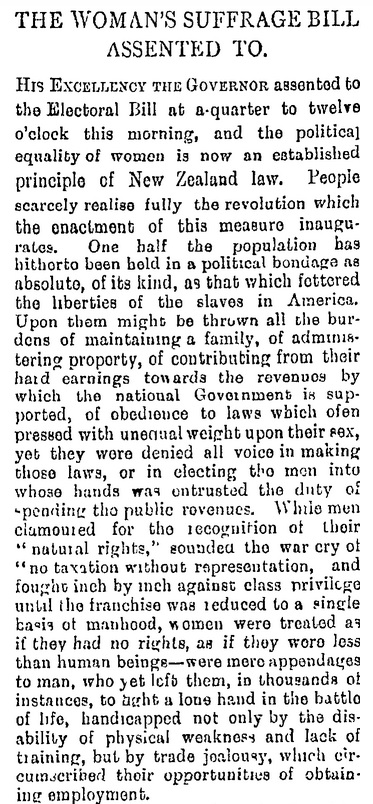The SSC has released its
draft Third National Action Plan for the Open Government Partnership. The idea of the OGP is that countries make concrete commitments of policies which advance the OGP's values of transparency, participation, and accountability, but New Zealand has always been half-hearted about that, preferring to offer business-as-usual policy or ambitionless pap. And unfortunately, the change of government doesn't seem to have changed this in the slightest.
There are twelve concrete commitments, grouped into three themes: participation in democracy; public participation to develop policy and services; and transparency and accountability. But about ten of those commitments are pretty obviously business as usual, or indistinguishable from it. So in the "participation in democracy" theme, the government wants to "improve engagement with Parliament", which is really just the ongoing work ParliamentTV is doing to expand its coverage. Its important work, and it matters, but its both stuff which is already happening, and not exactly ambitious. Its a similar story with their plans for an improved
youth parliament, and for improved accessibility of
secondary legislation: something we do anyway, with a few minor tweaks. The "school leaver's toolkit" could be novel, but is basicly a pilot, and we know its going to boil down to giving people an election enrolment form, kiwisaver form, and IRD number form and forgetting about them. Comprehensive civics education as part of the curriculum would have been a real commitment. This is just trivia.
The public participation theme is similarly a pilot, and if the OGP "participation" is anything to go by, all it promises is new ways to waste people's time. Trialing new participation models is all well and good, but at the end of the day there needs to be a willingness to actually set policy based on what the public says. Absent that, it is simply a scam and a waste of everybody's time, which undermines rather than enhances faith in government.
The transparency theme had the most ideas submitted, and the clearest public demand: what people want is reform of the OIA. What we're
getting is a "commitment" to "test the merits" of a review (and as we've seen from the material around proactive release, this is going to be focused on covering politicians' arses rather than actually producing more transparency). They've also "committed" to proactively publish Cabinet papers - something they have been working on since February and which they announced on Tuesday, so its not really a commitment at all. There's a review of the government use of algorithms - announced in
May, so business as usual; more transparency around government data stewardship (again, an
existing process); and an "authoritative dataset" of government organisations and data (which has had a
website for ten years, so its hardly new). Oh, and open procurement data, which actually means changing the licence and format on
GETS.
There is nothing ambitious here. There is nothing remotely approaching the OGP gold standard of a
star commitment. As for the
Independent Reporting Mechanism's recommendations, they've pretty much been chucked in the trashcan. Its just the same old business-as-usual bullshit we always get from the government on this. As for the 800 people who participated in this process and submitted ideas to it in good faith, it looks like they wasted their time. Again.
